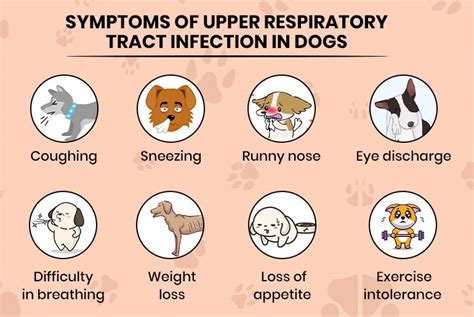Canine VS Feline Respiratory Infections
Respiratory infections are a major cause of illness in both dogs and cats. Canine respiratory infections (CRIs) are commonly caused by bacteria (Bordetella bronchiseptica, Mycoplasma cynos, and Streptococcus equi zooepidemicus) and viruses (canine distemper virus_, canine adenovirus-2, and canine parainfluenza virus-2). Feline respiratory infections (FRIs) are commonly caused by viruses (feline herpesvirus-1, feline calicivirus, and feline panleukopenia virus) and bacteria (Bordetella bronchiseptica, Chlamydia felis, and Mycoplasma haemofelis).*

The symptoms of CRIs and FRIs can be similar, but there are some key differences. Canine respiratory infections often cause a dry, hacking cough, while feline respiratory infections often cause a wet, productive cough. Canine respiratory infections are often accompanied by a fever_, while feline respiratory infections are rarely accompanied by a fever._ Canine respiratory infections can be more serious than feline respiratory infections**, and can lead to pneumonia and death.
Prevention of Pet Respiratory Infections
The best way to prevent pet respiratory infections is to vaccinate your pet. Vaccinations are available for both canine and feline respiratory infections, and they can be very effective in preventing disease. In addition to vaccination, there are a number of other things you can do to help prevent your pet from getting a respiratory infection, including:
- Keep your pet away from other sick animals.
- Avoid taking your pet to places where there are a lot of sick animals, such as kennels and animal shelters.
- Wash your hands before and after handling your pet.
- Keep your pet’s environment clean and free of dust and other allergens.
- Provide your pet with a healthy diet and plenty of exercise.
Treatment of Pet Respiratory Infections
The treatment of pet respiratory infections depends on the underlying cause of the infection. Bacterial infections are treated with antibiotics, while viral infections are treated with antiviral medications. In some cases, hospitalization may be necessary to provide supportive care, such as oxygen therapy and intravenous fluids.
Outlook for Pets with Respiratory Infections
The outlook for pets with respiratory infections depends on the severity of the infection and the underlying cause. Most pets with mild respiratory infections will recover with treatment. However, pets with severe respiratory infections may have a more guarded prognosis.
Tips and Tricks for Preventing and Treating Pet Respiratory Infections
- Vaccinate your pet.
- Avoid taking your pet to places where there are a lot of sick animals.
- Wash your hands before and after handling your pet.
- Keep your pet’s environment clean and free of dust and other allergens.
- Provide your pet with a healthy diet and plenty of exercise.
- If your pet has a respiratory infection, take them to the vet for treatment as soon as possible.
Reviews
- Pet respiratory infections are a major cause of illness in both dogs and cats.
- Canine respiratory infections are often caused by bacteria, while feline respiratory infections are often caused by viruses.
- The symptoms of CRIs and FRIs can be similar, but there are some key differences.
- The best way to prevent pet respiratory infections is to vaccinate your pet.
- The treatment of pet respiratory infections depends on the underlying cause of the infection.
- The outlook for pets with respiratory infections depends on the severity of the infection and the underlying cause.
Highlights
- Pet respiratory infections are a major cause of illness in both dogs and cats.
- Canine respiratory infections are often caused by bacteria, while feline respiratory infections are often caused by viruses.
- The symptoms of CRIs and FRIs can be similar, but there are some key differences.
- The best way to prevent pet respiratory infections is to vaccinate your pet.
- The treatment of pet respiratory infections depends on the underlying cause of the infection.
- The outlook for pets with respiratory infections depends on the severity of the infection and the underlying cause.
Future Trends
- The development of new vaccines for pet respiratory infections is a major focus of research.
- New antiviral medications are also being developed to treat pet respiratory infections.
- The use of telemedicine is increasing for the diagnosis and treatment of pet respiratory infections.
Case Detail
- A 2-year-old male dog presented to the veterinarian with a 2-day history of coughing and sneezing.
- The dog was vaccinated for canine respiratory infections, but had not been vaccinated for feline respiratory infections.
- The veterinarian diagnosed the dog with a canine respiratory infection.
- The dog was treated with antibiotics and the symptoms resolved within a week.
- However, the dog developed a recurrent respiratory infection 2 months later.
- The veterinarian tested the dog for feline respiratory infections and diagnosed the dog with feline herpesvirus-1.
- The dog was treated with antiviral medications and the symptoms resolved.
- The veterinarian recommended that the dog be vaccinated for feline respiratory infections to prevent future infections.
How to Stand Out
- Be the first to market with a new vaccine for pet respiratory infections.
- Develop a new antiviral medication for pet respiratory infections that is more effective than existing medications.
- Offer telemedicine services for the diagnosis and treatment of pet respiratory infections.
- Educate pet owners about the importance of vaccinating their pets for respiratory infections.
- Partner with veterinarians to provide comprehensive care for pets with respiratory infections.





















